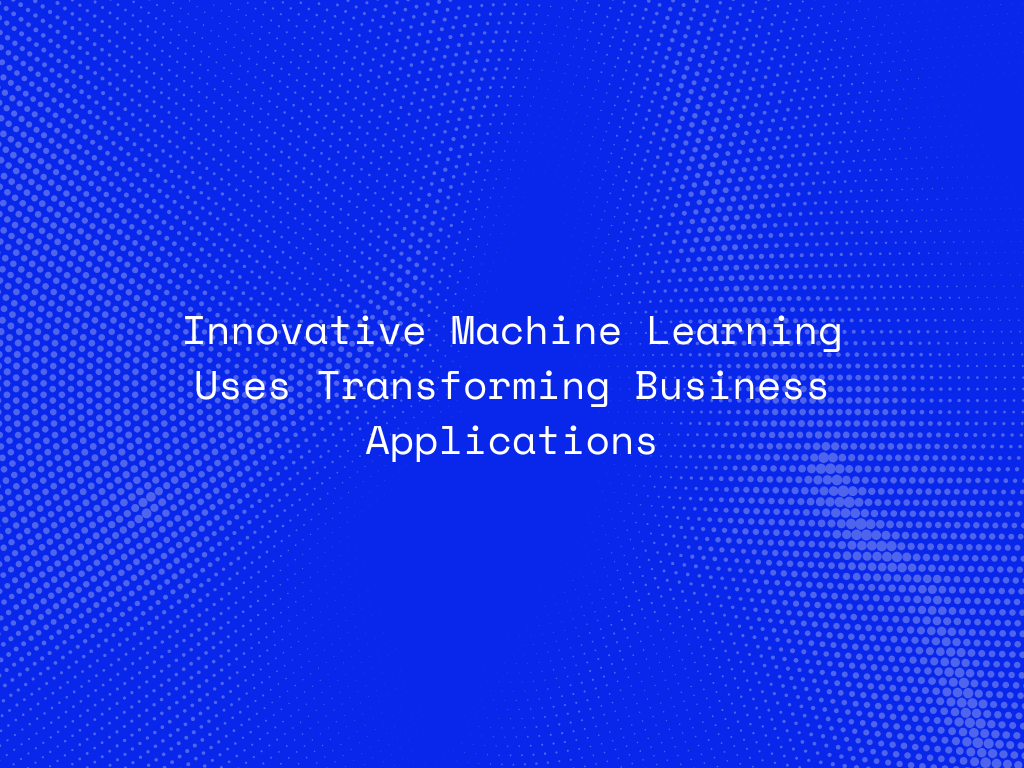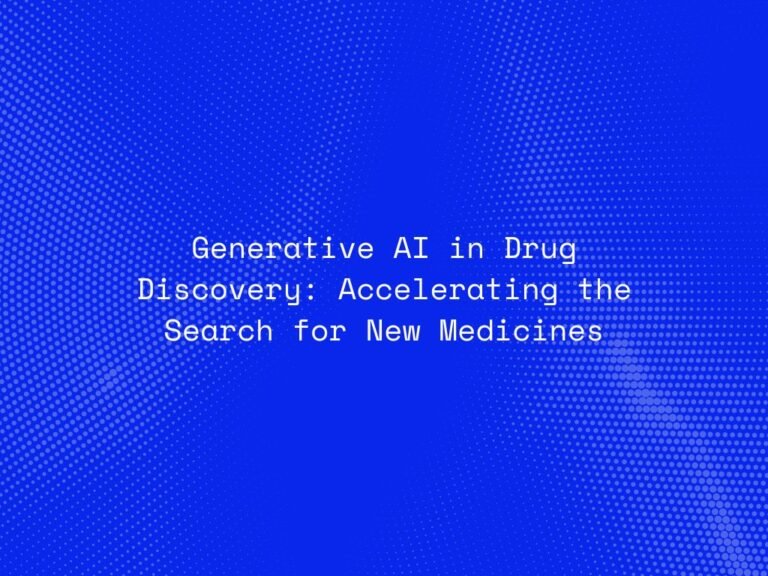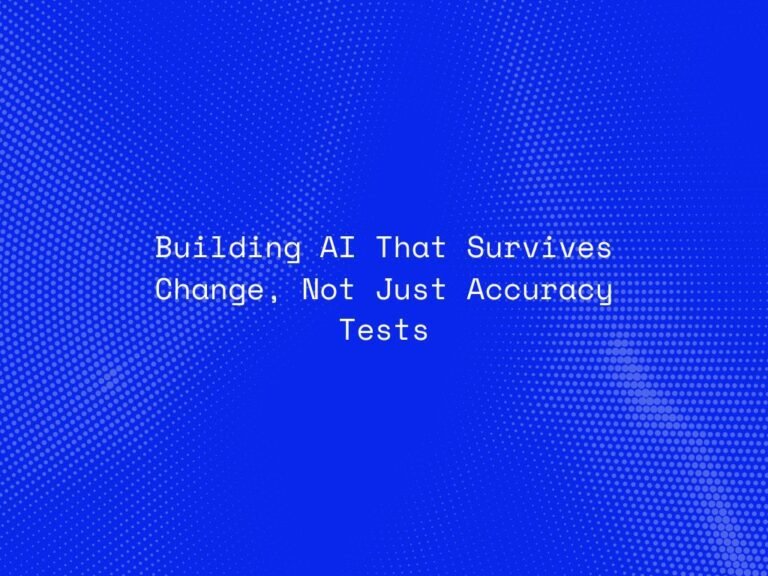Machine learning (ML) has transcended its role as a buzzword to become a cornerstone of modern business innovation. From revolutionizing customer experiences to streamlining operations, ML is reshaping industries with unprecedented speed and efficiency. By leveraging powerful algorithms and data-driven insights, businesses are solving complex challenges, unlocking new opportunities, and staying ahead in an increasingly competitive market. Let’s explore how machine learning is driving transformative change across industries.
1. Predictive Analytics: Empowering Proactive Decisions
Predictive analytics enables businesses to foresee trends, behaviors, and outcomes, giving them a strategic advantage in planning and decision-making.
Applications:
- Retail: Accurately forecasting demand to optimize inventory and supply chain management.
- Finance: Detecting anomalies to prevent fraud and scoring creditworthiness more precisely.
- Healthcare: Anticipating patient outcomes, hospital admissions, and resource needs.
Impact: Organizations equipped with predictive insights can anticipate challenges and opportunities, enhancing efficiency and reducing risks.
2. Hyper-Personalization: Redefining Customer Engagement
ML takes customer personalization to the next level by analyzing vast datasets in real time to deliver highly tailored experiences.
Examples:
- E-commerce: Recommending products and services based on user behavior and preferences.
- Streaming Platforms: Curating customized playlists or shows for individual viewers.
- Digital Marketing: Delivering dynamic and context-aware ad campaigns.
Impact: Hyper-personalization not only boosts customer satisfaction but also fosters loyalty and drives revenue growth.
3. Intelligent Automation: Transforming Operational Efficiency
Machine learning enhances automation by enabling systems to adapt, learn, and execute complex tasks traditionally handled by humans.
Applications:
- Manufacturing: Detecting product defects through ML-powered visual inspections.
- Logistics: Optimizing delivery routes for cost and time efficiency.
- Human Resources: Automating candidate screening and performance analytics.
Impact: Businesses achieve higher efficiency, reduced operational costs, and improved accuracy in daily tasks.
4. Natural Language Processing (NLP): Enhancing Communication
NLP uses ML to bridge the gap between human language and machine understanding, transforming interactions.
Applications:
- Customer Support: AI chatbots and voice assistants providing instant, accurate resolutions.
- Content Creation: Generating reports, articles, and summaries automatically.
- Social Listening: Analyzing customer sentiment through reviews and social media data.
Impact: NLP creates more intuitive and engaging communication channels, enhancing customer satisfaction and operational efficiency.

5. Advanced Cybersecurity: Staying Ahead of Threats
Cybersecurity is evolving with ML-driven solutions that proactively identify and mitigate risks.
Applications:
- Fraud Detection: Spotting unusual patterns in transactions or system behavior.
- Threat Analysis: Identifying vulnerabilities and predicting attacks before they occur.
- User Authentication: Reinforcing security with biometric recognition and behavioral analytics.
Impact: Machine learning fortifies defenses, safeguarding sensitive information and maintaining customer trust.
6. Data-Driven Decision Making: Unveiling Hidden Insights
ML models analyze massive datasets to uncover patterns and insights that would be impossible for humans to discern.
Applications:
- Retail: Optimizing pricing strategies to match consumer demand and competition.
- Finance: Portfolio optimization with AI-driven risk assessment.
- Healthcare: Identifying public health trends for targeted interventions.
Impact: AI-driven insights empower leaders to make smarter, faster, and more informed decisions, driving strategic success.
7. Edge Computing and TinyML: Intelligence at the Edge
TinyML brings machine learning capabilities to low-power devices, making real-time data processing possible at the edge of networks.
Applications:
- IoT Devices: Smart thermostats and wearable health trackers offering personalized recommendations.
- Agriculture: Drones and sensors providing real-time data on soil health and crop conditions.
- Healthcare: Portable diagnostic tools delivering instant analysis in remote areas.
Impact: By reducing latency and ensuring data privacy, TinyML opens doors to new applications in resource-constrained environments.
Challenges in Adopting Machine Learning
While the potential of ML is vast, businesses face critical challenges in its implementation:
- Data Complexity: Inconsistent or incomplete data can limit ML effectiveness.
- Skill Gap: The need for skilled data scientists and ML engineers remains high.
- Ethical Issues: Bias in algorithms and concerns about privacy must be addressed.
- Integration Hurdles: Seamless integration with legacy systems can be complex and costly.
Addressing these challenges is crucial for businesses to fully harness the power of ML.
The Future of Machine Learning in Business
The transformative impact of machine learning on businesses is just beginning. Future advancements promise to make ML more accessible, scalable, and versatile. Here are some trends to watch:
- Explainable AI: Ensuring ML models are transparent and their decisions are understandable.
- AutoML: Automating the development of ML models to democratize its adoption.
- Cross-Industry Applications: Expanding ML into areas like legal tech, education, and creative industries.
- Enhanced Human-AI Collaboration: ML tools complementing human expertise for better outcomes.
Conclusion:
Machine learning is more than a technology—it’s a catalyst for business transformation. From anticipating customer needs to securing critical assets, its applications are revolutionizing industries across the board. By embracing these innovative uses, businesses can unlock unparalleled value, overcome challenges, and prepare for a future where ML is at the core of every decision.




